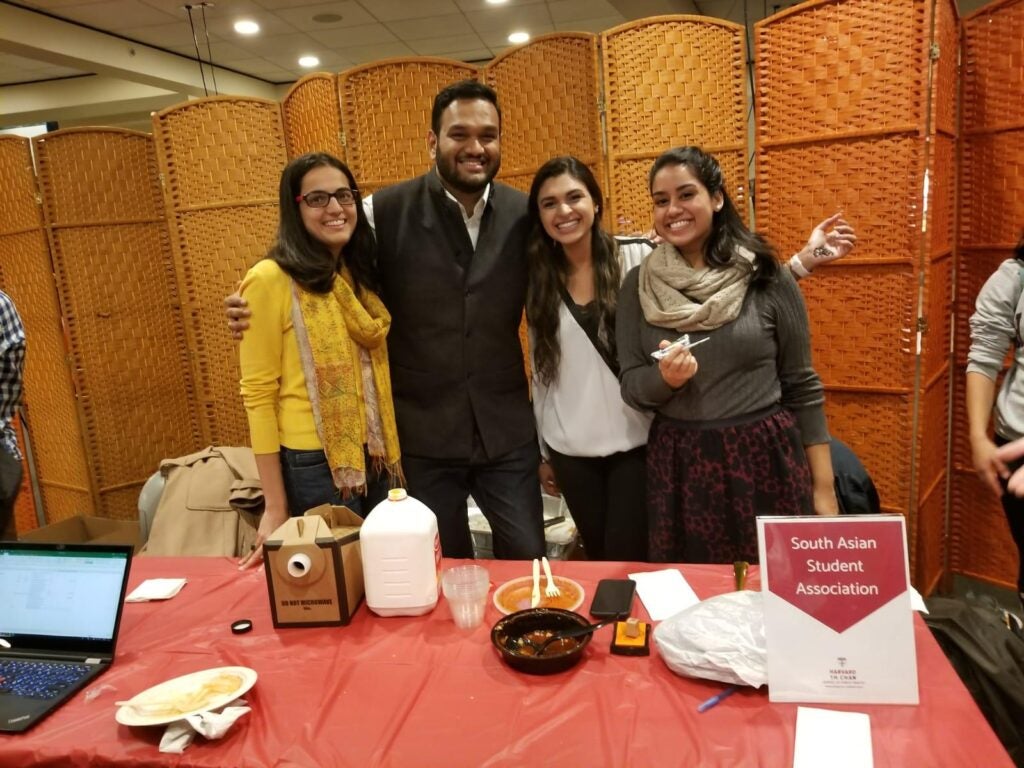Alumni Spotlight: Dr. Bhargav Krishna

Dr. Bhargav Krishna holds a Doctorate in Public Health (DrPH) from the Harvard T. H. Chan School of Public Health, a Master’s degree in Global Environmental Change from King’s College London and an undergraduate degree in Biotechnology from Anna University, Chennai. He is also an adjunct faculty member at the Public Health Foundation of India (PHFI).
Dr. Krishna is a Convenor, SFC, and Coordinator of the Environmental Governance and Policy vertical at the Sustainable Futures Collaborative. His research interests span areas of health policy, environmental policy, and environmental epidemiology, with a focus on the impact of air quality and climate change on health.
Previously, Bhargav was a Fellow at the Centre for Policy Research, and earlier set up and managed the Centre for Environmental Health at the Public Health Foundation of India (PHFI), where he led work on air quality, climate, and health. In this capacity, he served on Union and State Government expert committees on air pollution, biomedical waste, and critically polluted areas. He has also carried out work on health systems and sustainable development across several states.
How would you describe your experience at the Harvard T.H. Chan School of Public Health?
My time at the Chan School culminated in a terminal degree in a third different discipline after my Masters in climate science from the UK and a Bachelors in biotechnology from India. While I had worked in public health for a few years before my DrPH, I was unsure of how I would adapt to a new academic culture in a new discipline, especially as a mid-career doctoral student.

I quickly learned, however, that public health is a really open and welcoming field for people from all backgrounds, and the Chan school gave me the space to explore my interests with the necessary foundational training. The mentorship I received from my advisor Prof. Joel Schwartz and the late Dr. Richard Cash was hugely impactful in the choices I made for my work and career, and I made lasting friendships with people who challenged my world view and encouraged me to explore deeper, more meaningful questions.
What was the most valuable takeaway from your time at the Harvard T.H. Chan School of Public Health?
There were a few. First, it was really refreshing to see how invested everybody from the school leadership to faculty and teaching fellows were in your learning experience. The support you receive, especially as you transition fields, is remarkable. Second, the design of the DrPH program allowed for me to investigate in-depth my specific research questions, while also supporting broader exploration of who I was as a person and what I could contribute to public health and policy.

Third, the emphasis in grounding my work in lived realities – learned through a winter immersion working with the Mashpee Wampanoag tribe in Cape Cod. I carry forward each of these lessons in creating an environment of learning, allowing for holistic growth, and grounding the work that we do at my institution and in mentoring younger colleagues.
What would you advise others that are interested?
I would echo what others have said with respect to coming in with an open mind and figuring out what work interests you. In addition to this, leveraging the breadth of opportunities available on both sides of the river by engaging widely across different schools and networks. I would also urge folks to use the time away from work and in study as a time for introspection – the time at HSPH taught me a lot about myself and what motivated me to pursue the work I am doing right now.

What public health challenge are you currently working on and most passionate about?
My work lies at the intersection of air quality, climate, and health. In these areas it spans new epidemiological research to analysis of policy and governance regimes. As a developing country, India is home to several of the most polluted cities on the planet, with over two million deaths every year attributable to air pollution of various forms. Simultaneously, India has already begun experiencing the impacts of climate extremes, most visible in the form of heat waves which claim thousands of lives each year. Addressing these complex environmental, social and economic challenges while putting India on a path to climate-consonant development that pulls millions out of poverty each year and provides sustainable livelihoods is the challenge that my colleagues and I at the Sustainable Futures Collaborative focus our attention on.
What are some of the biggest public health challenges you foresee in the next decade, and how do you think we should prepare for them?
Climate change and environmental degradation are already impacting countries, especially in the global south. Their impacts act as force multipliers on already strained systems, exacerbating existing social and economic inequalities, killing millions each year, and worsening living conditions across the board. Global commitments made thus far are unlikely to substantially address the forecasted increases in risk envisioned under climate projections, and addressing these risks will require foresight to build resilient systems that protect health and wellbeing. In a world where science is politicised, the onus is on us as researchers to demystify the systemic and structural transformations that are necessary to ensure that lives and livelihoods are not just protected, but thrive under an increasingly warming world.